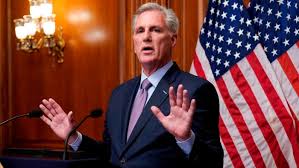The crypto sector is growing more exasperated with the Democratic Party’s apparent lack of consideration for digital assets and blockchain technology, as evidenced in their most recent party platform.
The Republican Party‘s perceived apathy has prompted it to bolster its backing for the burgeoning financial industry, thus widening the gap between the two parties on this matter.
During the Democratic National Convention, the party unveiled its 2024 platform, which conspicuously omitted any reference to cryptocurrencies, Bitcoin, or blockchain technology.
Many members of the crypto community were dismayed by this exclusion, as they had anticipated greater backing from the political party under the leadership of Vice President Kamala Harris.
Republican Senator Bill Hagerty of Tennessee alleged that Democrats have been harming the cryptocurrency industry while providing only superficial assistance during election campaigns.
Hagerty claimed that the Democratic Party platform’s utter lack of support for cryptocurrencies serves as further confirmation of the party leaders’ intention to persist in their efforts to undermine and dismantle the crypto industry, as they have been doing for the past four years. The Republican Party is associated with cryptocurrency.
Cynthia Lummis, a Republican Senator from Wyoming, has played a crucial role in promoting regulations that support cryptocurrencies. She has introduced the Preventing Illicit Finance Through Partnership Act, which aims to enhance cooperation between federal law enforcement agencies and private crypto organizations to effectively combat criminal activity.
Lummis has additionally put out an audacious proposal to establish a strategic reserve of Bitcoin for the United States. She suggests that the U.S. government should get one million Bitcoin within five years, which would account for around 5% of the whole Bitcoin supply.
The Republican Party’s endorsement of digital assets, spearheaded by prominent personalities such as former President Donald Trump, seems to be a calculated maneuver to capitalize on the increasing popularity of crypto and attract voters who perceive the Biden administration and regulators as excessively stringent towards digital assets.
With the intensification of the 2024 presidential contest, the ideological split regarding crypto is expected to emerge as a significant matter in the forthcoming elections.



